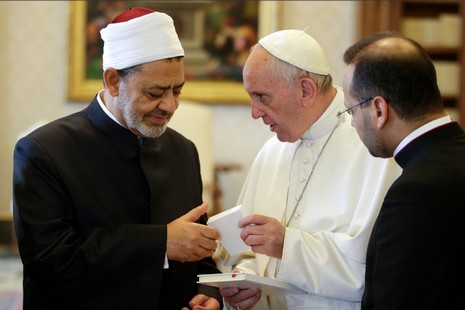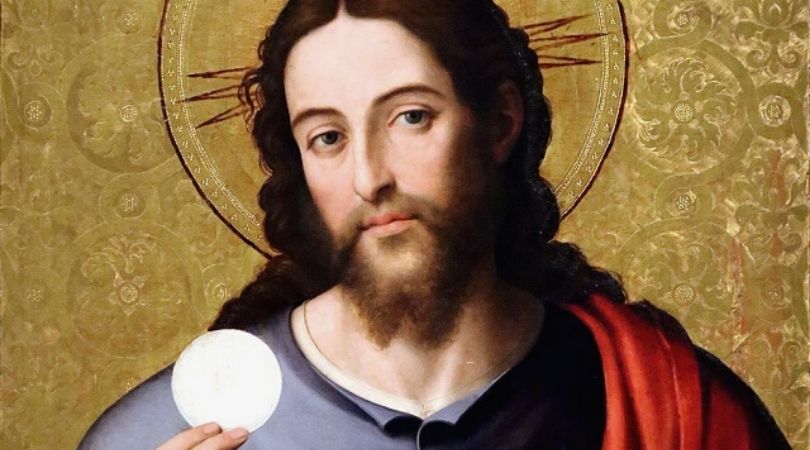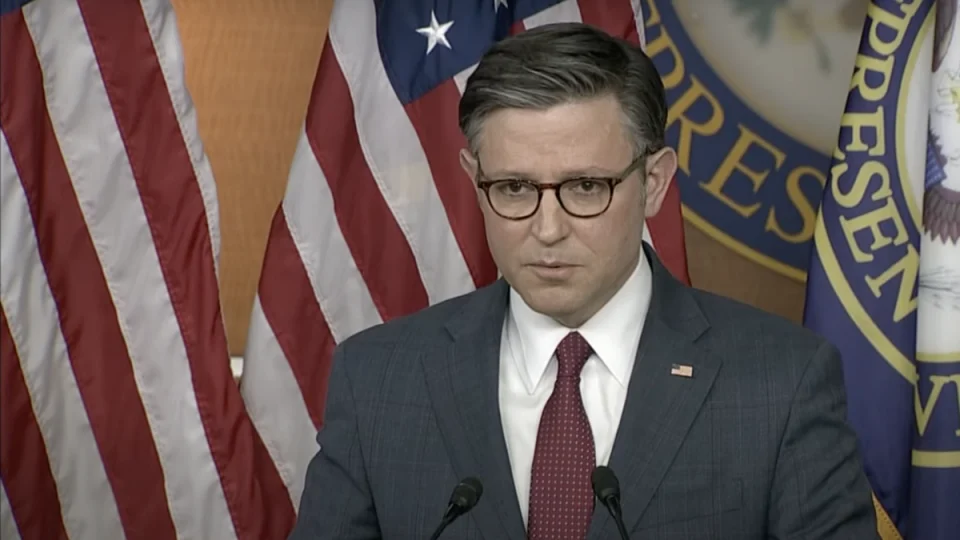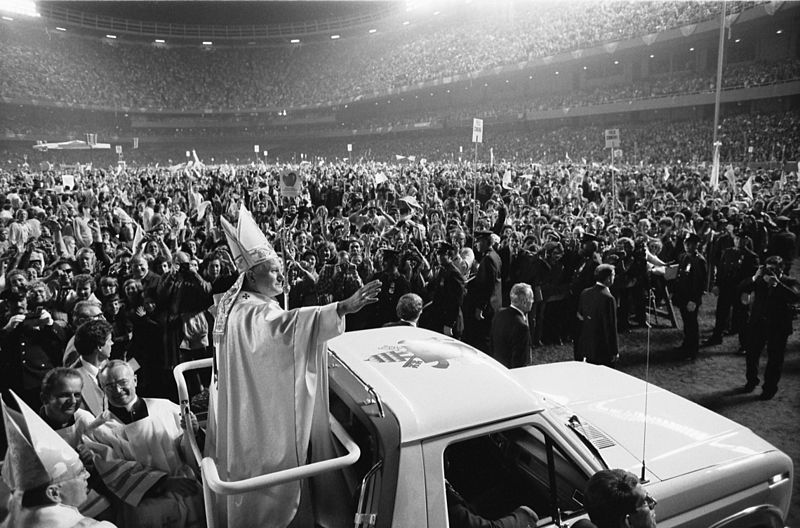Phil Lawler: Not All Religions Are Part of God’s Plan

Glenn T. Stanton: Manhood Is Not Natural
February 8, 2019
Catholic News Agency: Trump Talks Life, Religious Freedom at National Prayer Breakfast
February 8, 2019
By Phil Lawler, Catholic Culture, Feb 07, 2019
 Yesterday we celebrated the feast of St. Paul Miki, who, in the last moments before he died for the faith, said to the audience at his execution:
Yesterday we celebrated the feast of St. Paul Miki, who, in the last moments before he died for the faith, said to the audience at his execution:
The pluralism and the diversity of religions… are willed by God in his wisdom, through which He created human beings.
Oh, wait; my mistake. That’s not what St. Paul Miki said. That’s what Pope Francis said, in a joint statement with Sheik Ahmad al-Tayyib of Al Azhar, released during the Holy Father’s visit to Abu Dhabi. What St. Paul Miki actually said was quite different:
And so I tell you plainly: there is no way to be saved except the Christian way. My religion teaches me to pardon my enemies and all who have offended me. I do gladly pardon the Emperor and all who have sought my death. I beg them to seek baptism and be Christians themselves. [emphasis added]
In calling attention to the sharp contrast between these two statements I do not mean to denounce Pope Francis, any more than I mean to criticize St. Paul Miki. Still the contrast is remarkable, and invites some explanation.
The two statements were issued under very different circumstances, obviously. The Japanese martyr was a tireless missionary and evangelist, anxious to attract converts, seizing his last opportunity in this life. The 21st-century Pontiff is a champion of inter-religious dialogue, hoping to pry open a space for Christian activity in the Islamic world. St. Paul Miki and his companion martyrs inspired thousands of other Japanese to risk their own lives for the faith. Only time will tell whether the approach chosen by Pope Francis is equally successful.
The papal trip was already a success on one level. It is no small matter that, for the first time, a Roman Pontiff could celebrate the Mass on the Arabian peninsula, for a congregation of Catholics gathered openly for the Sacrifice. But the vast majority of people in that congregation were guest workers, not natives of the United Arab Emirates, and for the natives, born into Islam, conversion to Christianity is still forbidden. Restrictions on the practice of Christianity are relatively mild in Abu Dhabi, but just a few hundred miles to the north or west, in Iran or Saudi Arabia, Catholics could be jailed for attending Mass and converts from Islam would be summarily executed. During his conversation with reporters on the return flight to Rome, the Pope was asked by one Italian correspondent why he had not spoken about the persecution of Christians during this visit to an Islamic country. Pope Francis replied that he had spoken out about persecution, but it is telling that his statements on that topic had not made headlines, nor even made an impression on the Italian reporter’s memory.
Taken as a whole, the joint statement on Human Fraternity that the Pope and the Egyptian imam signed is a remarkably strong document. Unfortunately that one jarring sentence—which seems to suggest that God wills the rise of false religions—has distracted attention from the statement’s powerful defense of human life, its condemnation of religious extremism, its critique of materialism, its call for defense of the family. It’s a document well worth reading, and the fact that the world’s leading spokesman for Sunni Islam signed this statement represents a noteworthy achievement for Vatican diplomacy.
Yet there is that troublesome sentence, which seems quite unnecessary in the context of the whole statement, and which many readers will undoubtedly take as confirmation of the belief that Muslims can follow the Islamic path to God. It is difficult to reconcile that sentence with St. Paul Miki’s bold proclamation that “there is no way to be saved except the Christian way.”
So should we be embarrassed by words of the Jesuit martyr—by his insistence that the Japanese emperor must accept the Christian faith? And if his approach to evangelization is incompatible with our current preference for dialogue, why do we still honor his memory?
St. Paul Miki was far from unique, of course. In Smoke of Satan I write about the North American martyrs: the French Jesuits who offered up their lives because they were convinced that God did notwill the pagan practices they encountered, that the native Americans did need to accept Baptism for the sake of their salvation. That chapter of my book is entitled: “With Apologies to the Martyrs,” because if we honor those men for their sacrifice, we have no right to take a lackadaisical attitude toward evangelization—no right to accept the notion that all religions are equally part of God’s plan.
All roads lead to Rome, according to the old saying. Not all paths lead to heaven.
________________________________
Phil Lawler has been a Catholic journalist for more than 30 years. He has edited several Catholic magazines and written eight books. Founder of Catholic World News, he is the news director and lead analyst at CatholicCulture.org. See full bio.
https://www.catholicculture.org/commentary/the-city-gates.cfm?ID=1689




